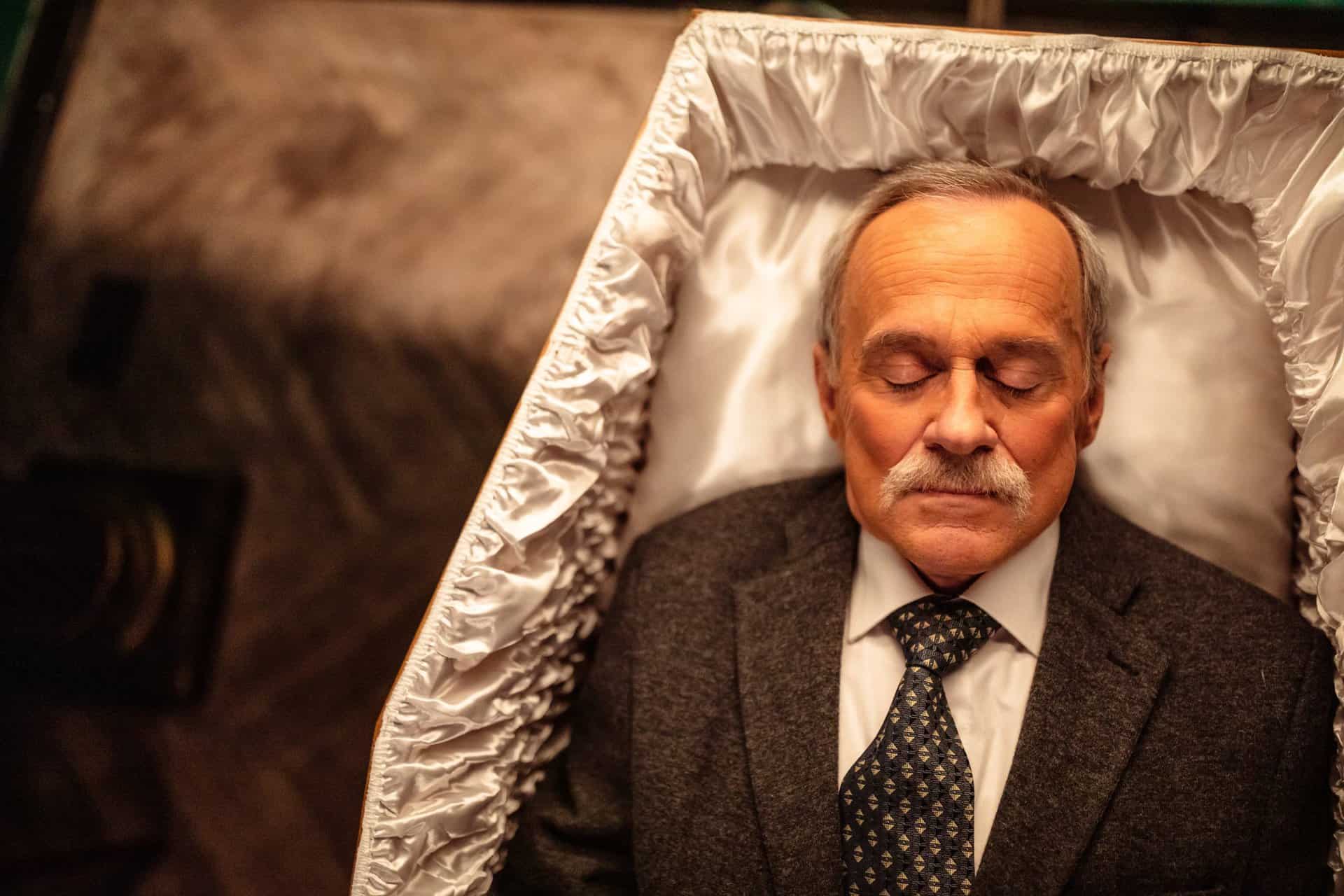When it comes to funeral services, cremation is becoming an increasingly popular choice in the United Kingdom. Along with this choice comes questions about the process of preparing a body for cremation. Whether you are pre-planning your own arrangements or making decisions for a loved one, understanding how a body is prepared for cremation can provide peace of mind during an already difficult time.
At its core, the process of preparing a body for cremation involves ensuring that the deceased is treated with dignity and respect throughout the entire process. This includes careful handling from the moment of death to the final placement of ashes.
In this article, we will explore the steps taken to prepare a body for cremation and address common questions and concerns surrounding this process.
Handling Of The Deceased
Did you know that in the United Kingdom, embalming procedures are not required by law for cremation? However, some families may choose to have their loved ones embalmed for religious or personal reasons. Embalming involves the use of chemicals to preserve the body and can provide temporary preservation for open casket viewings.
Religious considerations are also taken into account during the handling of the deceased. Funeral directors may ask families about specific religious customs and preferences regarding the care of their loved one. This can include washing and shrouding the body according to certain rituals or placing catholic religious symbols inside the casket.
At all times, funeral professionals prioritize respect, dignity, and sensitivity towards cultural traditions throughout the process. The next step in preparing a body for cremation involves completing necessary paperwork and identification procedures.

Paperwork And Identification
Once the deceased has been appropriately handled, it is time to prepare their body for cremation. This is a delicate process that requires the utmost care and attention to detail. Funeral homes have a team of professionals who are trained to carry out this task with respect and dignity.
Before the cremation can take place, there are certain legal requirements that must be met. These include obtaining a death certificate and completing any necessary paperwork.
Funeral homes will guide you through this process and ensure that everything is done correctly. They understand that this is a difficult time for you and your family, so they will handle all aspects of the paperwork on your behalf.
Removal Of Medical Devices And Implants
Once the deceased has been identified, the next step in preparing the body for cremation is to remove any medical devices and implants.
This process needs to be carried out with great care and attention to detail, as it ensures that the cremation process will go smoothly and safely.
Before removal, all medical devices are checked to ensure they are safe for handling.
If required, a sterilization process may be used to eliminate any potential risk of infection.
Ethical considerations are also taken into account, ensuring that any human tissue or organs are dealt with appropriately according to legal requirements.
Once everything has been checked and confirmed safe, the devices and implants are removed from the body using special tools designed for this purpose.
Clothing And Personal Belongings
When preparing a loved one for cremation, it is important to carefully select appropriate clothing. We understand that this can be a difficult process, so we are here to guide you through it every step of the way.
During the cremation process, any clothing or personal belongings will be respectfully removed and disposed of.
We can help you select an outfit that is meaningful and reflects the personality of your loved one.
Clothing Removal
When saying goodbye to a loved one, the thought of removing their clothing can be a difficult and emotional experience. However, it is necessary in order to prepare the body for cremation.
The clothing is carefully removed and disposed of according to cultural considerations and personal preference. Some families choose to keep the clothing as a memento, while others opt for disposal options such as donation or recycling.
It is important to discuss these options with your funeral service provider so that you can make an informed decision that aligns with your beliefs and values.
Personal Belongings Disposal
Now that we have discussed the emotional process of removing clothing from a loved one, let’s move on to the topic of personal belongings disposal.
This can be another difficult decision to make in the funeral planning process.
Disposal methods for personal belongings can vary depending on cultural beliefs and personal preferences.
Some families choose to keep sentimental items such as photos, jewelry or religious artifacts with them, while others prefer to donate or recycle them.
It is important to discuss your options with your funeral service provider so that you can make an informed decision that aligns with your values and beliefs.
Clothing Selection
Now that we have talked about personal belongings disposal, let’s move on to the subtopic of clothing selection for direct cremation process.
Deciding what to dress your loved one in for their final journey can be a difficult decision. Cultural considerations may come into play when selecting appropriate attire. Some cultures prefer traditional clothing or colors, while others opt for more casual or personalized options.
Your funeral service provider can offer guidance and suggestions based on your cultural beliefs and preferences. It is important to take the time to consider what your loved one would have wanted and choose clothing that reflects their personality and style.
Casket Or Container Requirements
In the United Kingdom, there are no legal requirements for a casket or container for cremation. However, most crematoriums require that the body be enclosed in a combustible container. This is to protect the safety of the crematory staff and ensure that the cremation process meets environmental regulations.
Caskets and containers can be made from a variety of materials such as wood, cardboard, wicker, and bamboo. It’s important to note that some casket materials may have an impact on the environment. For example, hardwood caskets can take decades to decompose and contribute to deforestation.
Therefore, many funeral homes now offer eco-friendly options such as biodegradable containers made from recycled paper or sustainable materials like bamboo. Families should consider their environmental impact when choosing a casket or container for their loved one’s cremation.
Frequently Asked Questions
How Long Does The Cremation Process Take?
When it comes to cremation, there are several factors that can affect how long the process takes. Generally, the actual cremation process itself can take anywhere from one to three hours, depending on a variety of factors such as the size and weight of the deceased, as well as the specific type of cremation equipment being used.
After the cremation is complete, families will typically have several options when it comes to choosing a cremation urn. From biodegradable urns that are designed to break down naturally in nature to more traditional metal or ceramic urns, there are many different options available depending on personal preferences and budgetary constraints.
Additionally, it’s worth noting that while cremation is generally considered to be a more environmentally friendly option than burial due to its lower land use requirements, there are still some environmental impacts associated with this process that should be taken into consideration. For example, some studies have suggested that certain types of emissions released during the cremation process may contribute to air pollution and other environmental concerns.
Ultimately, however, many families find that cremation provides them with a sense of closure and peace of mind during an otherwise difficult time.
Can A Pacemaker Or Other Electronic Implant Be Left In The Body For Cremation?
Before a body is prepared for cremation, it’s important to consider the safety of the process. If the deceased had a pacemaker or other electronic implant, it’s crucial to remove it before the cremation takes place.
Leaving these devices in can cause explosions and damage to the equipment, putting both staff and facilities at risk. Implant removal is a standard practice that ensures cremation safety and should be carried out by qualified professionals before proceeding with the cremation process.
At Funeral Service, we understand how important it is to ensure that your loved one receives a respectful and safe cremation, which is why our team is trained to follow all necessary procedures when preparing for a cremation service.
Are There Any Restrictions On The Type Of Jewelry That Can Be Worn During Cremation?
Wow, have you ever seen cremation jewelry? It’s absolutely stunning and can be worn during the cremation process.
However, it’s important to note that there may be some religious restrictions on the type of jewelry that can be worn. For example, in some faiths, it may not be appropriate to wear anything with a religious symbol.
If you’re unsure about what is acceptable, it’s always best to consult with your funeral director or religious advisor beforehand. But don’t worry, there are plenty of beautiful options available that will honor your loved one’s memory while still adhering to any necessary guidelines.
Is Embalming Required Before Cremation?
Embalmment is not required before cremation, contrary to popular belief.
However, some cultures prefer embalmment as part of their preparation process.
Alternatives to embalming include refrigeration or dry ice, which can preserve the body for a short period of time until the cremation process.
It is important to note that cultural differences in cremation preparation exist and should be respected.
In the United Kingdom, cremations are typically carried out within a few days after death, making it less necessary for embalmment unless requested by the family or required by law.
Can Family Members Witness The Start Of The Cremation Process?
Witnessing the start of a cremation can have a different emotional impact on each person. For some, it provides closure and comfort to see their loved one’s body being taken care of with respect and dignity.
However, others may find it too difficult to bear witness to the process. At our funeral service in the United Kingdom, we understand that everyone grieves differently and offer the option for family members to witness the start of the cremation process if they choose to do so.
We provide support and guidance throughout this experience, ensuring that all safety protocols are followed while also respecting the wishes and emotions of those involved.
Conclusion
So there you have it, the process of preparing a body for cremation. It is a delicate and respectful process that requires careful attention to detail.
From removing any electronic implants to ensuring that the correct jewelry is worn, every step is taken with the utmost care.
If you are considering cremation for yourself or a loved one, rest assured that the process will be handled with professionalism and compassion. And if you wish to witness the start of the cremation process, most funeral homes offer this service as well.
At Funeral Services UK, we understand how difficult it can be to navigate end-of-life decisions. That’s why our goal is to provide compassionate guidance every step of the way.
Let us help you honor your loved one in a way that reflects their unique life and legacy.


